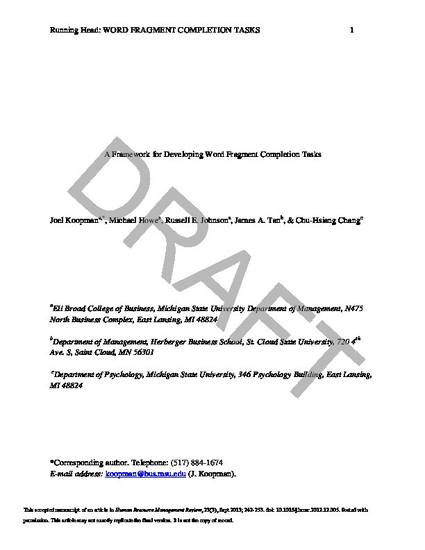
Article
A framework for developing word fragment completion tasks
Human Resource Management Review
(2013)
Abstract
To broaden our understanding of the person-based phenomena that impact organizational behavior, researchers are increasingly making use of implicit measures. Explicit measures tap affect, attitudes, and self-concepts that are accessible to introspective awareness, which are sometimes unreliable or distorted by response biases. In contrast, implicit measures assess mental content and processes that operate outside awareness. Unfortunately, the ad hoc manner in which implicit measures are sometimes developed is problematic. As a way of improving research on implicit content and processes, we present a detailed and practical framework for developing one type of implicit measure: word fragment completion tasks. Such tasks have been successfully used to measure a variety of individual difference variables in previous organizational research. Our framework draws on previous research and well understood psychometric principles to describe a process for creating reliable and valid word fragment completion tasks.
Keywords
- Implicit,
- Indirect measurement,
- Word fragment completion,
- Validation
Disciplines
Publication Date
September, 2013
DOI
10.1016/j.hrmr.2012.12.005
Citation Information
Joel Koopman, Michael D. Howe, Russell E. Johnson, James A. Tan, et al.. "A framework for developing word fragment completion tasks" Human Resource Management Review Vol. 23 Iss. 3 (2013) p. 242 - 253 Available at: http://works.bepress.com/michael-howe/2/
